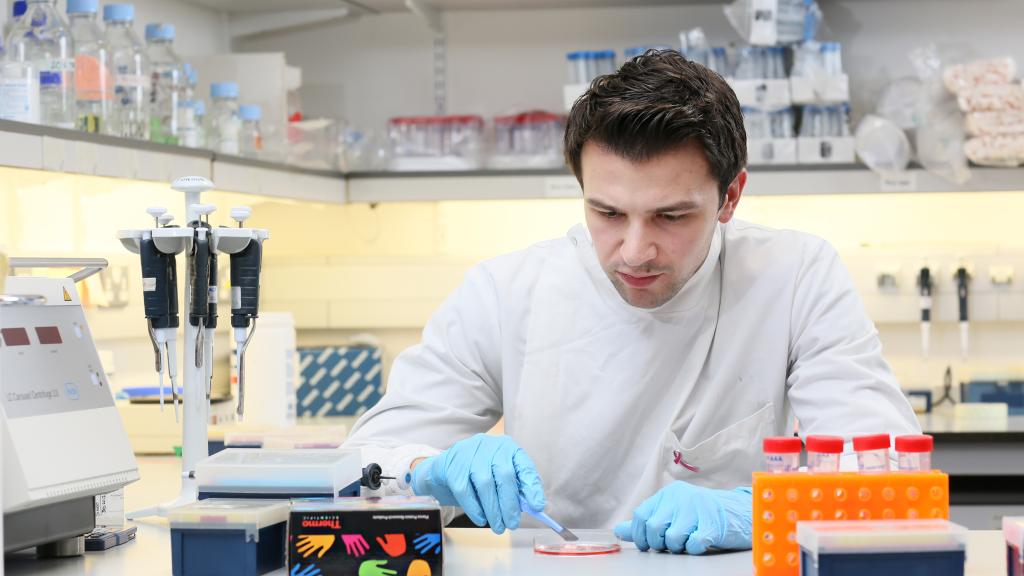
Potential treatment options discovered for advanced breast cancer patients
A new finding by researchers funded by the Irish Cancer Society gives hope for breast cancer patients whose cancer has spread to the brain.
One in five women initially diagnosed with HER2-negative breast cancer, but has since metastasized (spread) to the brain, could now have a new treatment option open to them thanks to the findings of BREAST-PREDICT researchers.
Prof. Leonie Young and Dr Damir Vareslija have discovered that one in five primary tumours which were HER2-negative at diagnosis became HER2-positive following metastasis to the brain. As a result, these HER2-positive tumours could be treatable with HER2-targeting agents (such as Herceptin) which are already widely used in breast cancer treatment.
Approximately 15-30% of women with advanced breast cancer will develop brain metastases during the course of the disease. These patients have a reduced quality of life and poor overall outcome.
This study examined matched pairs of samples from primary breast tumours and brain metastases, from 20 patients, and examined the differences between the primary and metastatic samples.
The results of this study may have immediate clinical implications for this subset of patients. Following on from this research, the authors have recommended that patients who develop brain metastases should be monitored for possible changes in HER2 status to ensure that they receive the most appropriate treatment.
Prof Young and Dr Vareslija recently published their work in the prestigious journal JAMA Oncology. Read Intrinsic Subtype Switching and Acquired ERBB2/HER2 Amplifications and Mutations in Breast Cancer here.Their research was carried out in collaboration with researchers from the University of Pittsburgh.
WATCH: Dr Vareslija talks about his cancer research (1min)
European honours
In February 2017 Damir was honoured for his high-calibre work when we received the European Association for Cancer Research (EACR) Young Scientist Award.
He is currently in his final year of post-doctoral research with BREAST-PREDICT, based in the Royal College of Surgeons in Ireland. His research has focussed on identifying the key features which enable an aggressive breast cancer tumour to spread to the brain.
Damir’s work has shown that breast cancer cells can adapt to the way they communicate with each other. The cells can switch different genes on and off, allowing the cancer to survive in the brain.
These important findings have the potential to change treatment care for breast cancer patients with metastatic brain disease.
